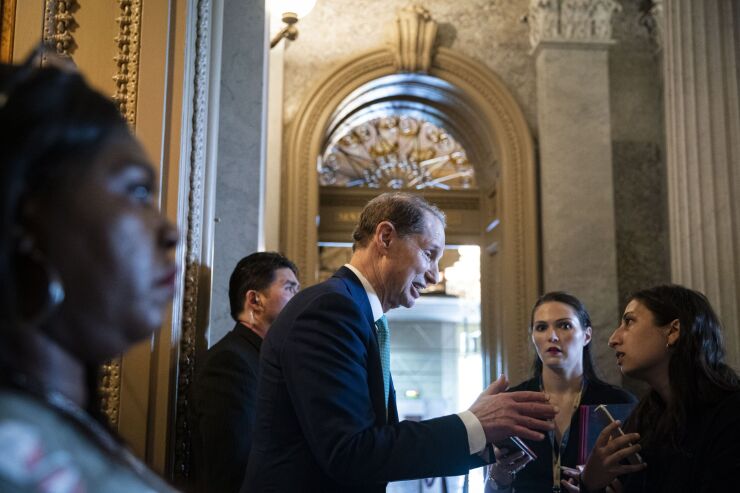Senate Finance Committee Chairman Ron Wyden has drafted legislation that would overhaul a major part of the 2017 tax overhaul that Republicans billed as a boon to small businesses, and Democrats have criticized as benefiting wealthy business owners.
The
The

Though it would be extended to cover previously ineligible professions, the bill would cap eligibility by income. Taxpayers earning $400,000 or less in qualified business income would not see any change, while the deduction would gradually phase out for those making more than $400,000 from a business where the income passes through directly to the owner or owners, until fully phasing out at $500,000.
As head of the committee that oversees tax policy in the Senate, Wyden, an Oregon Democrat, wields significant influence in discussions around the congressional Democratic economic agenda, and the overhaul could help provide more revenue for priorities ranging from temporarily more generous tax credits to building projects.
“Few policies showcase Republicans’ commitment to giveaways to the top 1% like the pass-through deduction created in their 2017 bill,” Wyden said in a statement. “The mega-millionaires get to write-off 20% of their income while middle-class accountants are cut out. This makes no sense, and my bill would overhaul the deduction to ensure it’s benefiting Main Street small businesses.”
Though an official Congressional Budget Office has not been made public yet, Wyden expects the new cap on the pass-through deduction to raise tens of billions of dollars for the federal government over the standard 10-year budget window.
Capping the deduction could run into political headwinds, since the deduction is broadly seen as a small business deduction, but owners for a wide income range of closely held businesses can claim it, a fact that Democrats have criticized.
In 2018 the Joint Committee on Taxation estimated that by 2024 slightly more than half the total benefit in dollars from the deduction would go to taxpayers making more than $1 million annually, though most business owners claiming the deduction make less than $200,000.
The Biden administration has also expressed openness to use changes to the deduction as an offset for the costs of its infrastructure and social spending plans. Speaking at a conference in June, Kimberly Clausing, the Treasury Department’s deputy assistant secretary of tax analysis, said she “wouldn’t read much into the absence” of changes to the deduction in administration proposals.





